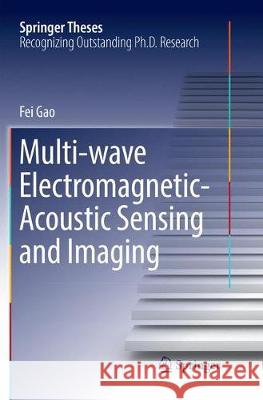Multi-Wave Electromagnetic-Acoustic Sensing and Imaging » książka
topmenu
Multi-Wave Electromagnetic-Acoustic Sensing and Imaging
ISBN-13: 9789811099502 / Angielski / Miękka / 2018 / 150 str.
Kategorie:
Kategorie BISAC:
Wydawca:
Springer
Seria wydawnicza:
Język:
Angielski
ISBN-13:
9789811099502
Rok wydania:
2018
Wydanie:
Softcover Repri
Ilość stron:
150
Waga:
0.26 kg
Wymiary:
23.39 x 15.6 x 0.97
Oprawa:
Miękka
Wolumenów:
01
Dodatkowe informacje:
Wydanie ilustrowane











